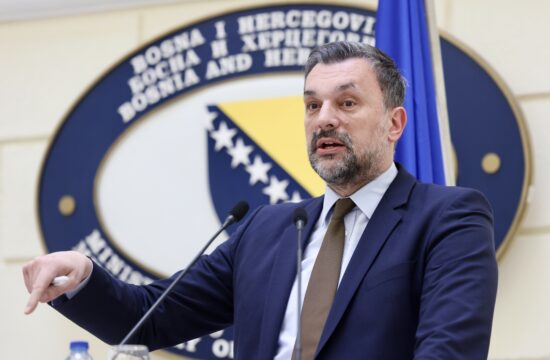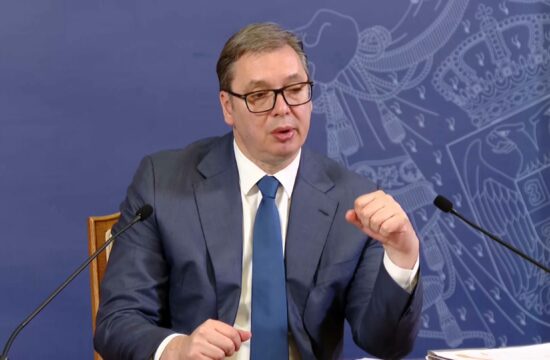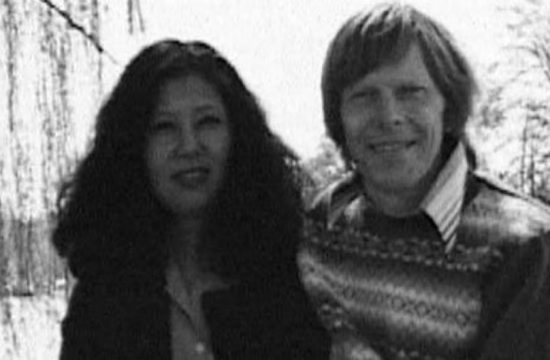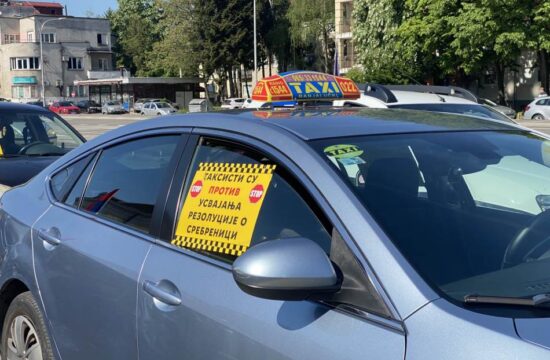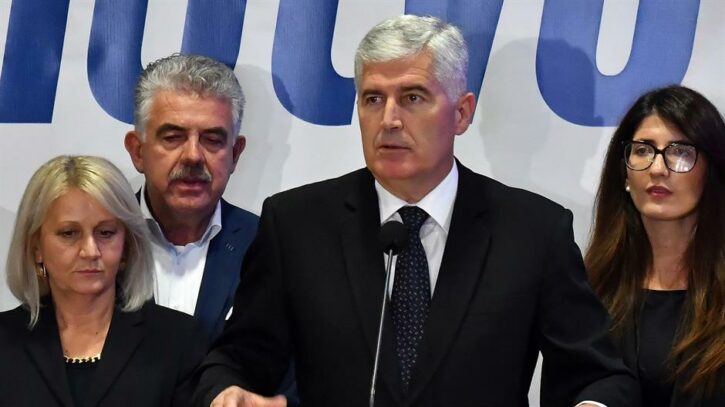
It will be hard to implement the election results in Bosnia and Herzegovina, which is entering a difficult situation, said outgoing Croat member of Bosnia’s tripartite Presidency, Dragan Covic, who was defeated in this year’s run for the same post.
“I am convinced that the Croat people will get a dominant support through the project of the Croat People’s Assembly, gathered around the Croat Democratic Union (HDZ BiH) in all cantons where we are majority…,” said Covic, the HDZ BiH leader, speaking for the Croatian media a day after the election weekend in Bosnia.
Zeljko Komsic, the Democratic Front (DF) leader won in the race for the Croat member of the Presidency with, according to the latest preliminary results, over 177,000 votes, beating Covic who got the support of 127,172 voters.
Covic disapproved of the Komsic’s victory, claiming he was elected thanks to the votes of Bosniaks, one of the two dominant ethnic groups in Bosnia’s Federation (FBiH) entity, who along with the Croats elect two members of the Presidency. The third member is elected in Bosnia’s Serb-dominated entity, Republika Srpska (RS).
Prior to this election cycle, the HDZ BiH leader was amongst the loudest advocators of the Election Law changes which would, as he was saying, secure that one people do not elect legitimate representatives in the government to other people.
The Election Law proposal that the HDZ BiH presented and which was rejected in the state parliament stipulated the formation of ad hoc constituencies in FBiH entity, where the Presidency members would be elected directly, but candidates’ victory would be determined by the number of won votes and dominance of people in the given constituencies. In this way, a Croat candidate could be elected only if it won the majority of votes in the constituency dominated by Croats and the third, neutral constituency. If this condition is not met, the winner would be the next candidate meeting this criteria and having the largest number of votes. The same would apply for Bosniak candidates.
Some of the major political parties that rejected the law, including the Party of Democratic Action (SDA) assessed the proposal as discriminatory.
“We tried to pave the way of success but that’s impossible without our friends Bosniaks and Serbs in authorities. This is a message that the representatives of the international institutions in Bosnia and Herzegovina, who had no courage to support us when we propose changes to the Election Law, should analyse in a special way, and now we have a situation that we had anticipated,” Covic said in an itnerview for RTL television.
“We will have to come up with a project for how to fully protect the Croat people,” he stressed, concluding, “We will have to send a clear message to the Bosniak people, with whom we share the Federation, the whole Bosnia and Herzegovina, and to the international institutions. They will need to have a completely different policy when it comes to the smallest in number people in Bosnia and Herzegovina.”
Bosnia's general election took place on Sunday when the citizens cast their ballots for the members of the state Presidency, RS president and vice presidents as well as the members of the state, entity and cantonal parliaments. The Central Election Commission (CEC) said the voter turnout was 53.36 percent.

